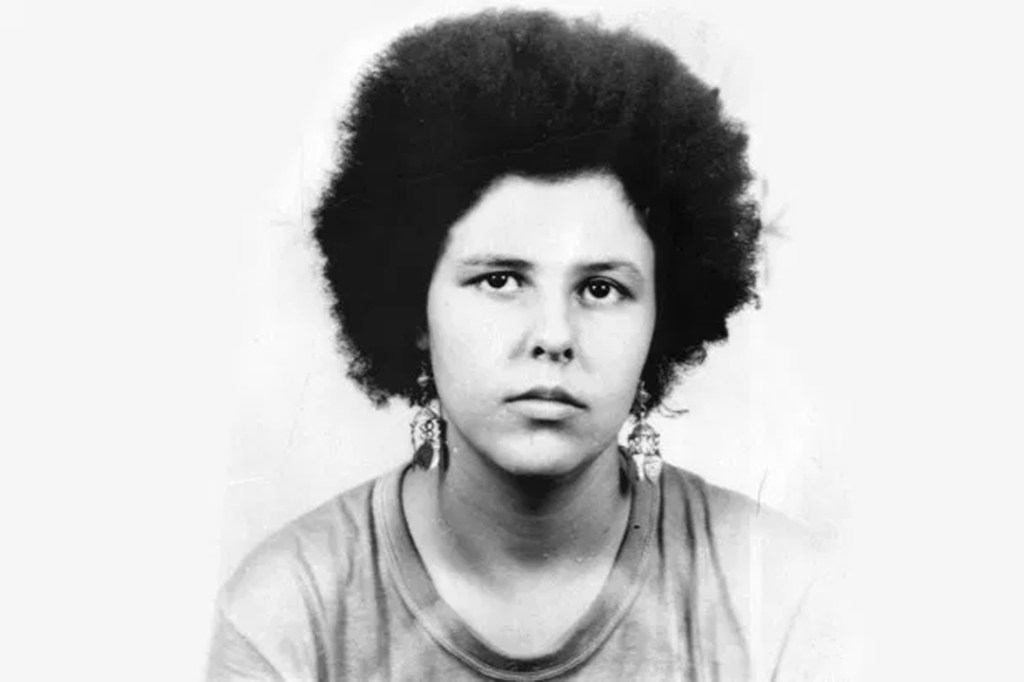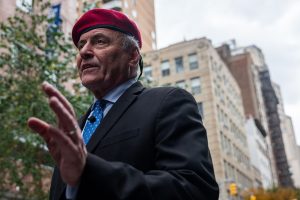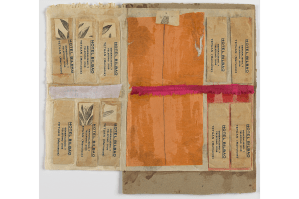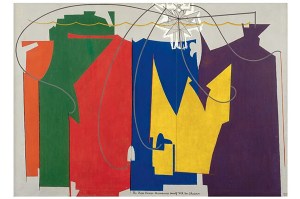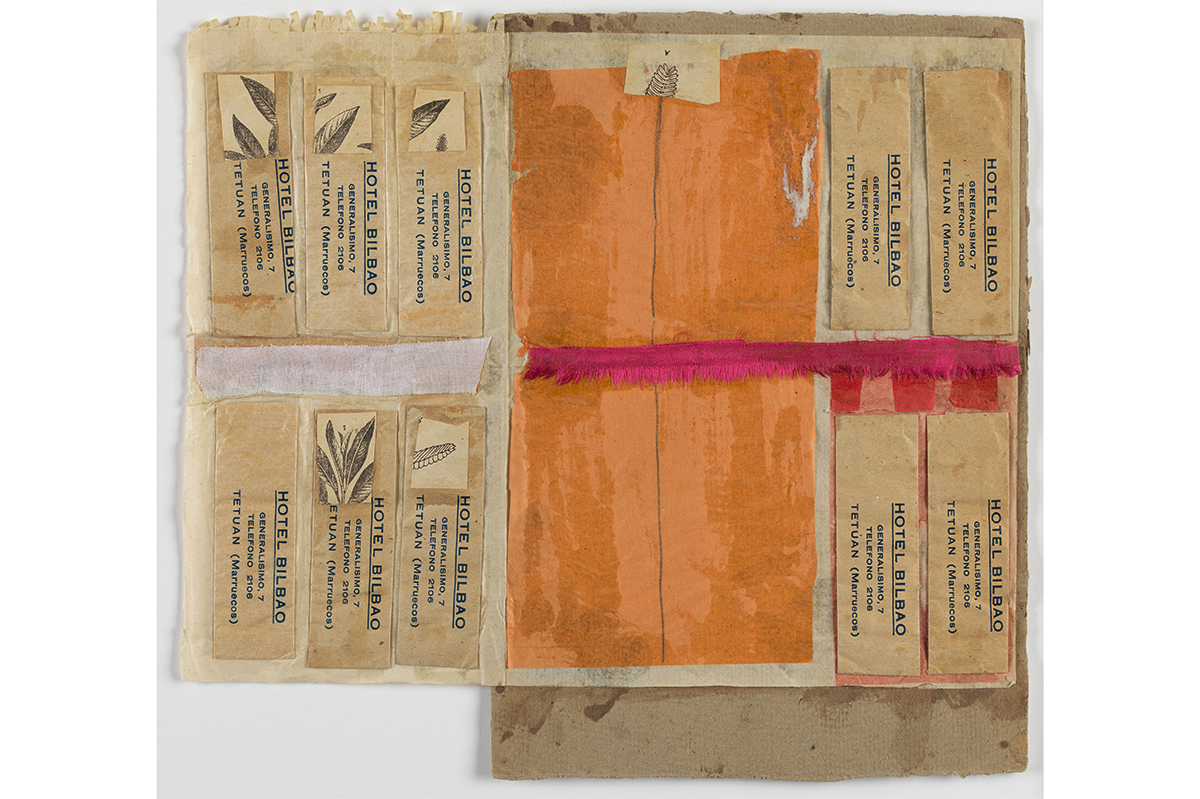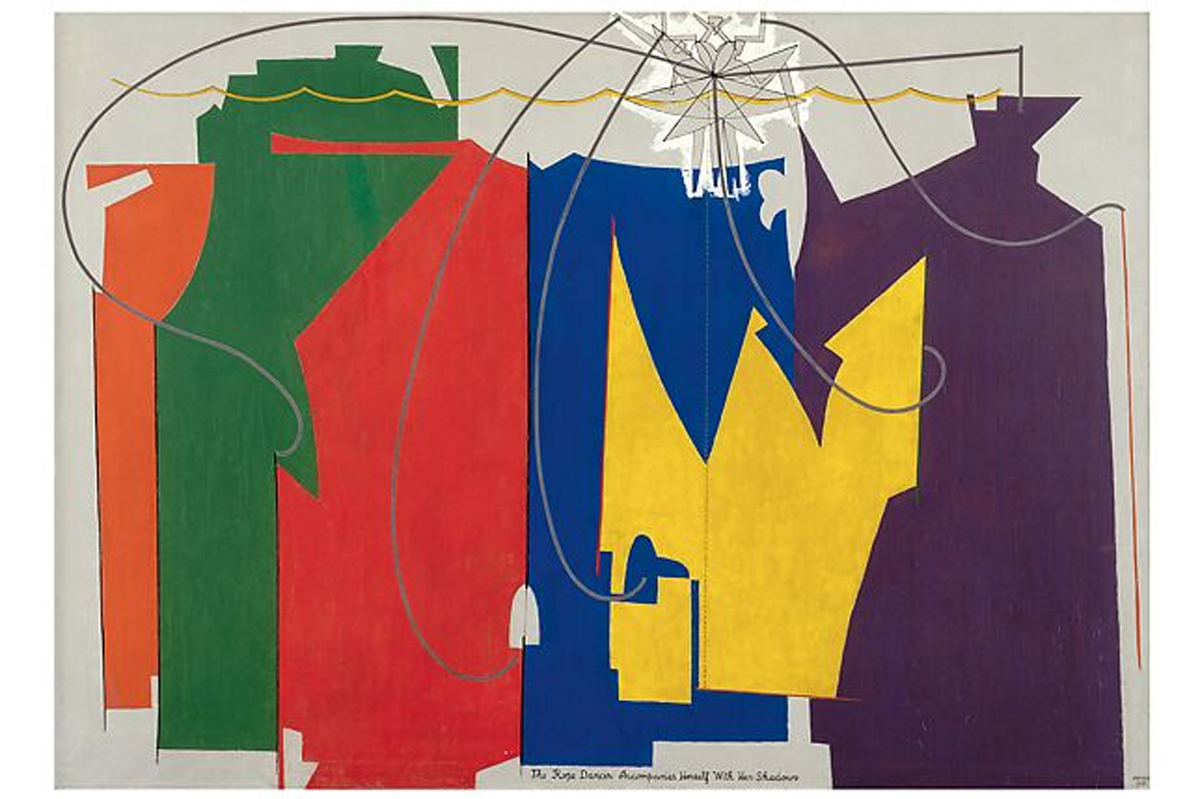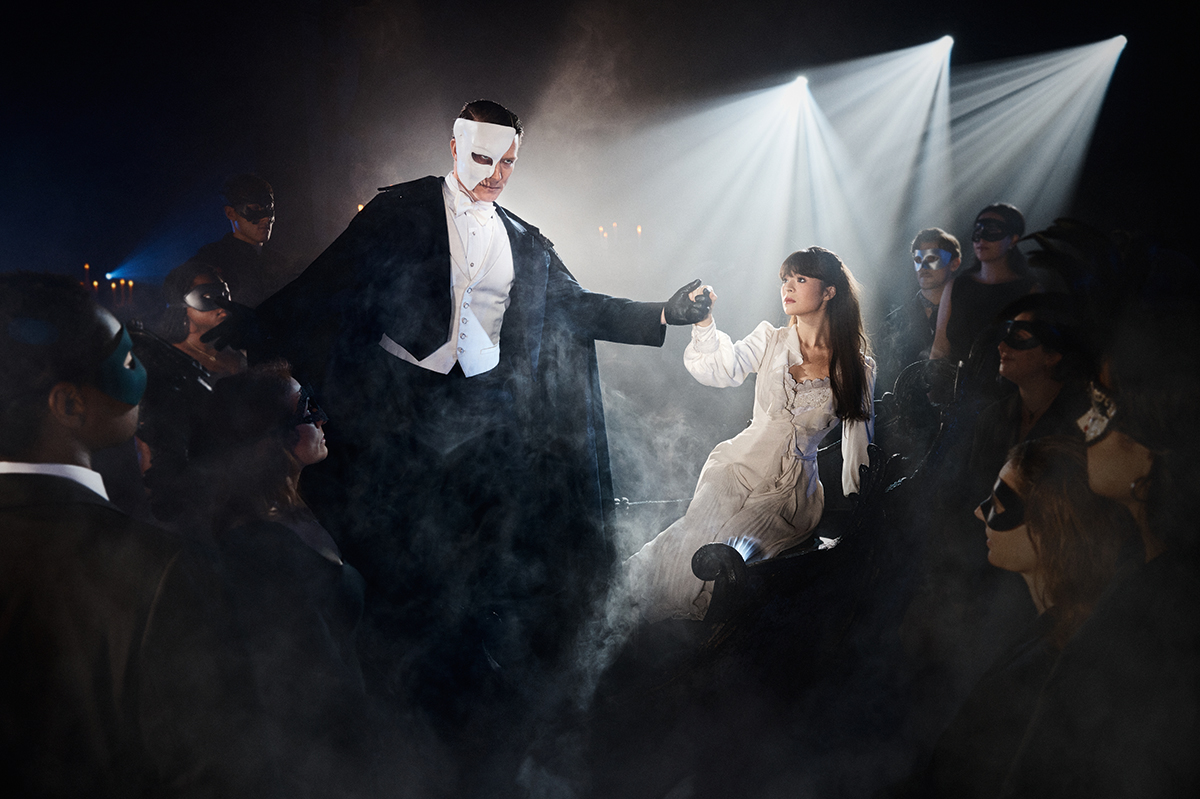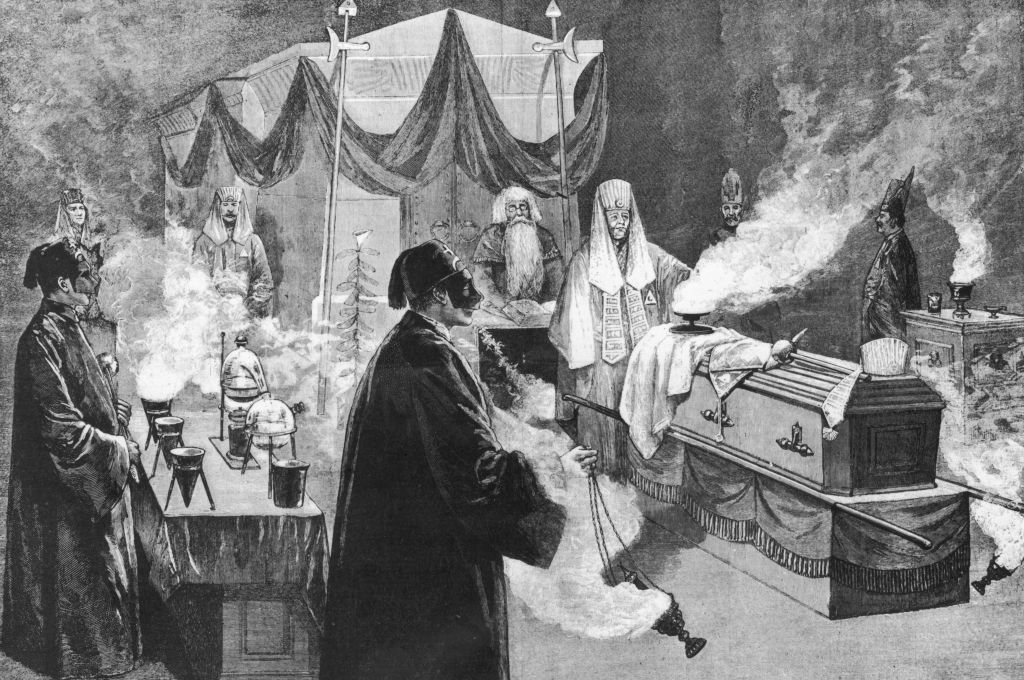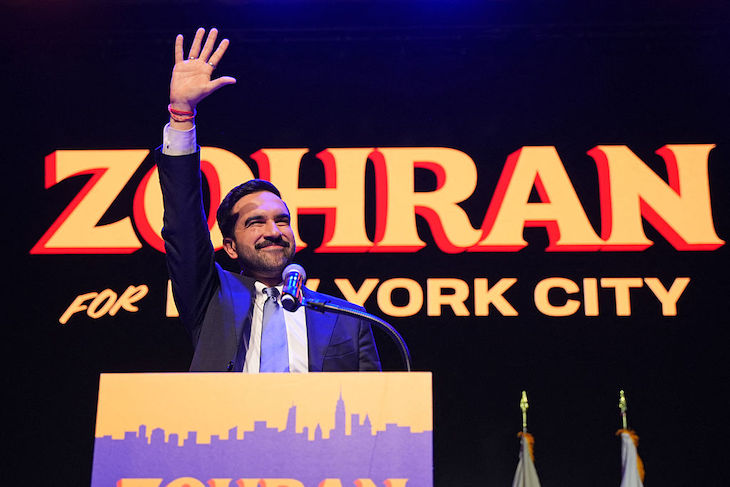One evening in September 2016, New York Governor Andrew W. Cuomo visited a prisoner at Bedford Hills Correctional Facility, a high-security prison for women in Westchester County, New York. He spent an hour talking with the elderly, white-haired convict, who was serving a 75-year-to-life for felony murder. Given the length of her sentence, she couldn’t expect to appear before the state parole board until she was 106 years old.
Then, at the end of the year, Cuomo commuted her sentence, making her eligible for a parole hearing in 2017. ‘When you meet her you get a sense of her soul,’ Mr. Cuomo told reporters. ‘Her honesty makes her almost transparent as a personality.’ That April, the board issued a unanimous ruling, telling her that letting her out ‘would deprecate the seriousness of your crimes as to undermine respect for the law. You are still a symbol of a violent and terroristic crime.’
She got another hearing earlier this month, and in a 2-1 ruling, the board granted her parole. The decision marked the culmination of a decades-long campaign by politicians, human rights activists, and Hollywood luvvies, including the actors Glenn Close, Kevin Kline, and Steve Buscemi. Some called Clark a political prisoner, others said she was a reformed and repentant character who no longer posed a threat to society.
Judith Alice Clark certainly is no run-of-the-mill murderer. On October 20, 1981, she was part of a botched armed robbery in Rockland County, New York that left two Nyack policemen and a Brink’s security guard dead. Her release, scheduled for next month, is bringing to a close a bizarre story of homegrown violent extremism and ideological insanity that stretches back to the 1950s.
Clark, born in 1949, a classic ‘red diaper’ baby whose parents were full-time party functionaries inside the slavishly pro-Moscow Communist Party USA. In 1950, her father Joe moved the family to Moscow, where he served as the correspondent for the Party’s Daily Worker newspaper. Having seen the yellow-eyed, pockmarked face of Stalinism up close, he and his wife Ruth gradually drifted away from communism, but Joe remained a man of the left, and a leading figure at Dissent, the voice of democratic socialism in the late 1950s.
But young Judy kept the faith. She loved the party’s warm embrace, which included stays at a summer camp with other children of communist parents (the communist fellow-traveling folk singer Pete Seeger sometimes strummed his banjo at the camp’s lakeside hootenannies). Her parents’ apostasy shattered her. ‘I couldn’t bear the loss of community and ideology and purposefulness in my life,’ she said in 1994.
As an undergraduate at the University of Chicago she joined the Students for a Democratic Society, protested against the Vietnam War, and was part of a takeover of an administration building. A disciplinary committee voted to expel Clark and 42 other students. Although he hated her politics, Joe Clark nevertheless asked fellow Dissent editor and literary critic Irving Howe to reach out to the novelist Saul Bellow, who had ties to Chicago’s president, Edward H. Levi. Bellow asked him to grant her a second chance. ‘No. She’s a bad one,’ Levi said. Judy was out.
No matter. By now she was a self-described revolutionary. As SDS fractured, she joined the Weathermen, which would evolve into the most notorious homegrown domestic terrorist group of the 1970s. By the end of the decade, Weather had cracked up, a victim of infighting, rampant misogyny, raging egos, and its own political irrelevance.
But Clark hadn’t given up on the armed struggle. In 1978-79, she and some other veteran far-left activists decided to form a new sisterhood of the bomb and the gun — the May 19th Communist Organization, named after the birth dates of two of their revolutionary idols, Ho Chi Minh and Malcolm X.
Some of the May 19th women linked up with a group of African American men who were carrying out armored car and bank robberies in and around New York. Their revolutionary ‘expropriations,’ as they called these heists, were ostensibly to finance domestic ‘freedom fighters’ and the creation of a Southern ‘homeland’ for blacks known as the Republic of New Afrika.
Mutulu ‘Doc’ Shakur, an acupuncturist, jogging enthusiast, and heavy cocaine user (and the stepfather of the rapper Tupac Shakur) operated out of a Harlem brownstone that was part clinic and part safehouse. Doc wowed Clark and other M19th women with his tough-guy persona, right-on rhetoric, and rock-solid street cred.
Doc and the guys would supply the firepower. The women would rent safe houses, buy weapons, do surveillance, and drive getaway cars — they’d be much less likely than Shakur’s crew to draw police scrutiny. The women referred to themselves as the ‘white edge.’ Doc and his men called them ‘the crackers.’
The arrangement appeared to pay off: Between April 1980 and June 1981 their armored truck and bank robberies netted nearly $800,000. They also participated in the spectacular prison breakouts of two major terrorists: Joanne Chesimard (the ‘mother hen’ of the Black Liberation Army, as one former prosecutor called her), who was in a New Jersey prison serving a life sentence for the murder of a state trooper; and Willie ‘No Hands’ Morales, a Fuerzas Armadas de Liberación Nacional (‘Armed Forces of National Liberation’) bomb-maker who lost nine fingers and a chunk of face when one of his creations accidentally exploded. Today, both Chesimard and Morales remain official guests of the Cuban government.
In the spring and summer of 1981, Clark and other May 19th women, together with Shakur and his crew, planned a major operation — the robbery of a Brink’s truck that picked up and dropped off cash at the Nanuet Mall in Rockland County. It promised to be their biggest haul ever, and on the afternoon of October 20, 1981, they rolled into the mall parking lot
Things didn’t go according to plan. Doc’s trigger-happy men, possibly jacked up on coke, shot and killed one guard and badly wounded another. They made off with $1.6 million, but were stopped by the police on their way back to New York. Shakur’s crew killed two cops, one at point-blank range.
Careening at high speed through town, Clark crashed her getaway car. As the police approached the wrecked Honda, they saw her reaching for something on the back seat. Cops grabbed her before she could get her hands on the fully loaded 9.mm pistol she brought along on the job.
Clark and other Brink’s conspirators were convicted in 1983. Other May 19th members decided on a different direction after the botched robbery. These self-identified ‘North American anti-imperialists’ carried out a bombing campaign between 1983 and 1985 that included attacks on the Washington Navy Yard, an FBI office and the South African consulate in New York — and, on November 7, 1983, the US Capitol. Like Weather before it, May 19th ended in failure. In the words of one former member, ‘our larger project of war in amerikkka could not have been more ambitious, or more delusional.’
But the story of Judy Clark and May 19th isn’t quite finished. Most of the participants in the group’s violent escapades are dead or have served long prison sentences. But Betty Ann Duke, a May 19th member who jumped bail in 1985, is still wanted by the FBI. Some Obama-hating ‘birthers’ have insisted that Duke is the former president’s real birth mother. If she’s still alive, she’s close to 80, and there’s a $50,000 reward for information leading to her arrest and conviction.
William Rosenau is the author of Tonight We Bombed the US Capitol: The Explosive Story of M19, America’s First Female Terrorist Group, to be published on August 20 by Atria Books, a division of Simon & Schuster.



